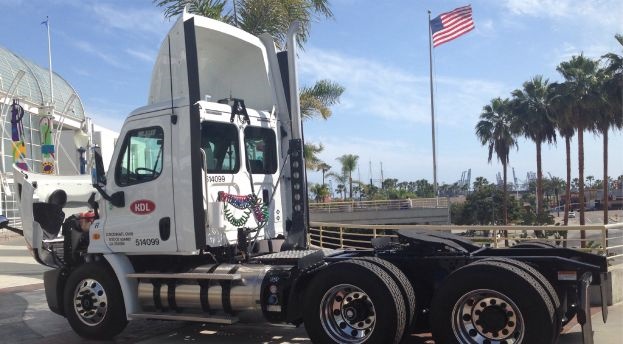It all started with one tractor back in 2014. That was the beginning of making Fred Meyer the very first company in Oregon to deploy a fleet of heavy-duty LNG trucks. Each truck averages about 175 miles per day, six days a week, 52 weeks a year, and is expected to reduce greenhouse gas emissions by approximately 755 metric tons per year, which equates to removing approximately 159 passenger cars from the road annually. And it all started with just one tractor.
Fast forward to 2016 – one truck has become 40, and earlier this week Fred Meyer announced that it is buying 500,000 gallons of renewable natural gas to power that 40 truck fleet! Through this move, Fred Meyer is expected to reduce their GHG emissions by 5,328 metric tons annually — the equivalent of 1,125 passenger vehicles driven for one year. That’s some great news! Work Truck has the story:
“Fred Meyer Stores, a division of The Kroger Co., announced an agreement with Clean Energy calling for up to 500,000 gallons of Redeem renewable natural gas (RNG) fuel for its fleet of 40 LNG trucks based out of its Clackamas, Ore., distribution center.
Fred Meyer is the first company in the State of Oregon to take advantage of the Oregon Clean Fuel Program, which calls for the reduction of greenhouse gas (GHG) emissions through the use of cleaner fuels such as natural gas and renewable natural gas, according to Clean Energy. By fueling with Redeem, Fred Meyer is expected to reduce their GHG emissions by 5,328 metric tons annually.
The grocery chain received its first LNG tractor in December 2014, with the remaining 39 trucks delivered and deployed over the following several months. The trucks replaced older, less-efficient diesel trucks in the fleet.
According to Fred Meyer, the trucks average approximately 175 miles per day, six days a week, 52 weeks a year. They are expected to reduce greenhouse gas emissions by approximately 755 metric tons per year, which equates to removing approximately 159 passenger cars from the road annually. The trucks are manufactured at Freightliner’s North Carolina plant.”
